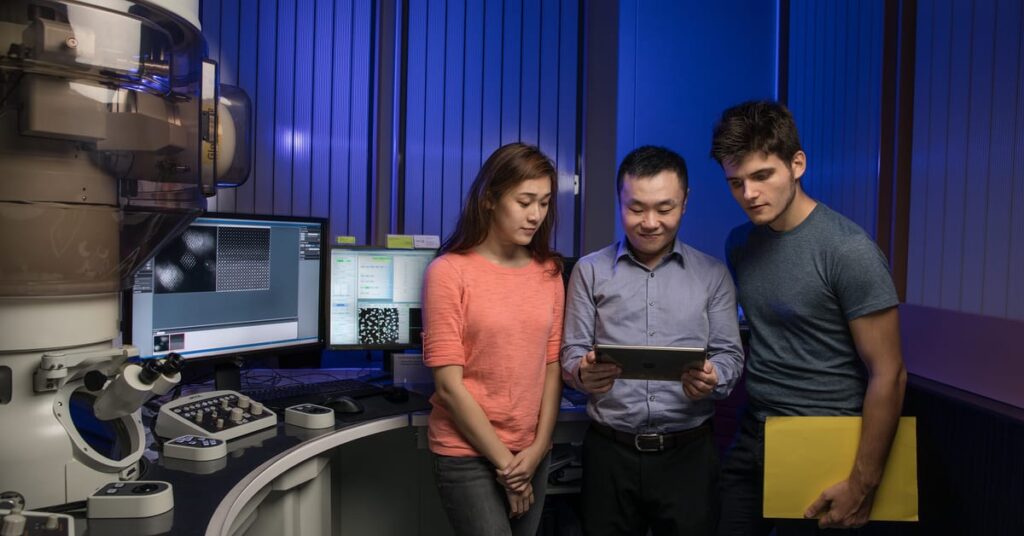Dr. Wang also teaches a module that’s as experiential as it is foundational. Thermodynamics for Sustainability examines energy conversion through the lens of physical principles. It directly links to his lab’s research on electrified chemistry, a “globally unique research platform, established in Singapore.”
For him, bringing real-world context into the classroom is a top priority. “I take great pride in translating insights from my research into the classroom, enabling students to grasp complex physical principles through real-world applications,” he says. And each year, his lab opens its doors to MSc students, offering research projects in large-scale energy storage, recycling of waste battery materials, and on-demand hydrogen production.
Students can also apply knowledge in the Research Centre for Electrochemical Systems and Technologies (CREST), which was established by the Department of Materials Science and Engineering in 2023. Apart from solving urgent environmental and societal problems through translational research, CREST plays a major educational role. It provides MSc students with exposure, while fostering innovation and encouraging entrepreneurship in the field of electrochemical technologies
The department even maintains close ties with leading Agency for Science, Technology and Research (A*STAR) research institutes. “These experts offer cutting-edge research projects to MSc students, providing them with valuable exposure to the frontiers of materials science and engineering,” says Dr. Wang.

